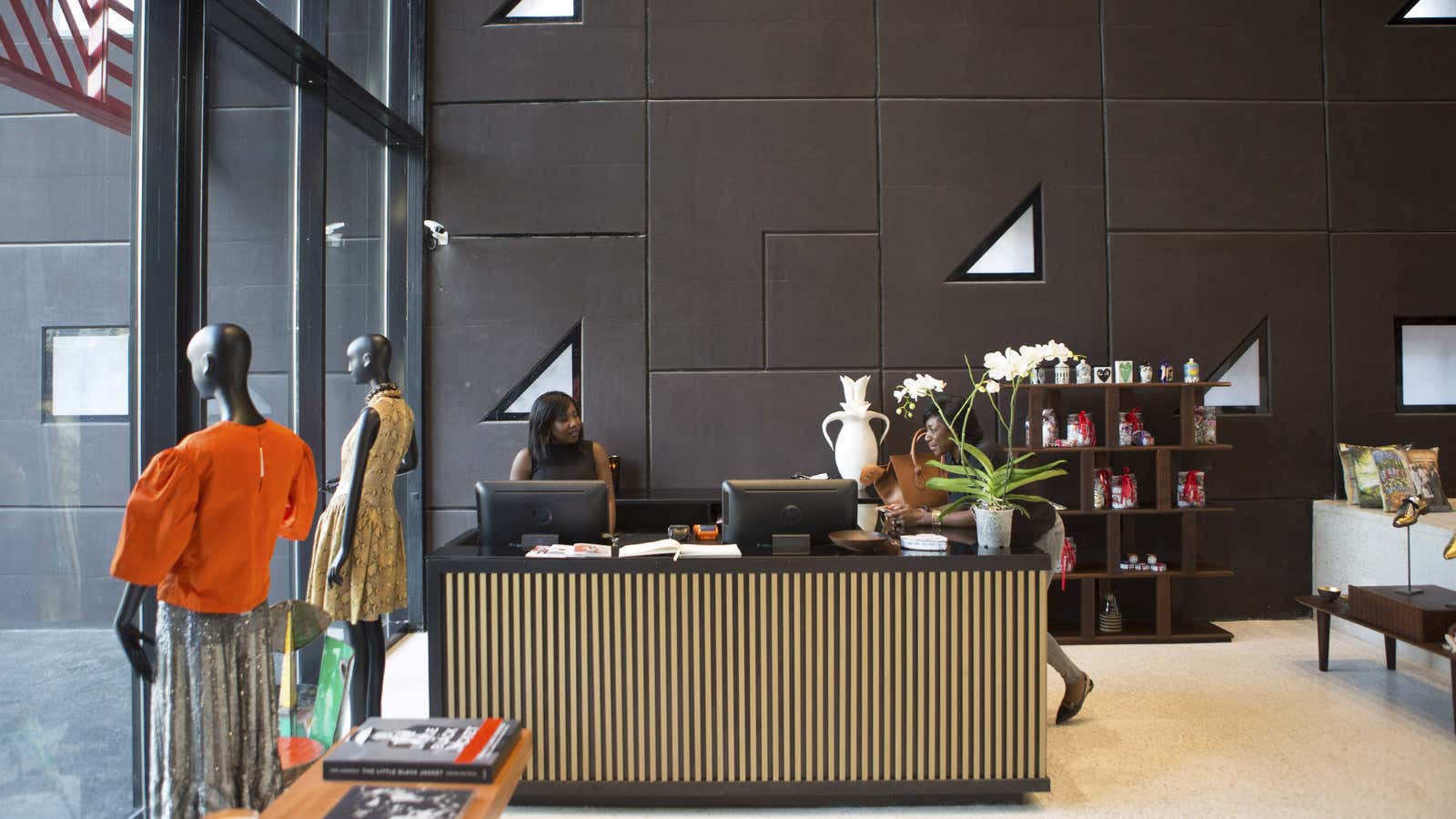People who visit a fancy place for the first time tend to take pictures to document the memory, sometimes by posting on social media. Being the authority on cool or quaint spots can be a ladder for influence, attracting advertisers and brand endorsements.
But where do people find fancy places?
For a birthday hangout two years ago, I searched for restaurants on Google Maps using the ‘Explore’ feature, but real life disappointed compared to pictures on the app. It did not cross my mind to check Instagram because that did not feel built for my need.
Last week, three Nigerian entrepreneurs launched Backdrop, an app they say solves this problem not just for residents of Lagos, Nigeria but for everyone in the world.
Melding many apps into one
Backdrop looks a bit like Instagram and Pinterest, but its niche focus is on curating aesthetically pleasing places.
Each backdrop is a picture of a location, like the Chromatic Gate in Los Angeles, California or the Wondr Experience museum in Amsterdam. The app’s target audience includes frequent travelers, domestic tourists, and content creators like photographers, and cinematographers. It launched with about 100 backdrops each from 26 cities across Asia, Africa, and Europe.
“The aim is for Backdrop to be the go-to travel app for exploring and fundamentally changing the experience of travel,” Damilola Odufuwa, the company’s CEO, tells Quartz.
Backdrop finds images from the internet with attribution to sources. In addition, the 18 month-old company has photo researchers who move through cities to capture images.
But its hope for scale as a social network will rely on user-generated content. New users on the app (which is only on iOS for now) can add pictures that are not already listed, subject to the review of more active users. A crucial feature of the review is ensuring that each picture is tagged with meta information about the location, including address, opening times, permission for pets, outdoor sitting, and other details that will enable visitors to plan adequately.
Succeeding where Google and Facebook flopped
Backdrop is free. Like its social media elders, advertising is the clearest route to monetization, but only if it rapidly gains millions of users around the world to intrigue businesses. The major social media apps today have at least 100 million monthly active users. TikTok, the world’s most popular app, just hit 1 billion, and is challenging Facebook on social commerce.
If it wants to be global, the bar is high for Backdrop which is being built from Nigeria (though the 14-person team works entirely remotely).
The company’s other co-founders are Odunayo Eweniyi, co-founder of Nigerian fintech startup Piggyvest, and Timilehin Ajiboye, the CEO of a crypto platform called Buycoins. While each of them may have access to a global network of friends and tech industry eggheads, Backdrop is their first test of the capacity to build a mainstream consumer tech product for the world. They are essentially aiming to succeed where some Big Tech efforts have failed – Facebook’s Hobbi, and Google’s Google+ to name two.
Odufuwa, who leads Binance’s public relations in Africa, is confident, arguing that the app’s beta test included users from around the world.
As with other social networks, Backdrop will evolve depending on user interests that, in a world driven by evolving smartphone technologies, can create markets for products that don’t seem necessary at first glance.
“I could see Backdrop becoming of service to countries known for travel, helping visitors discover how to explore them,” Odufuwa says.
Sign up to the Quartz Africa Weekly Brief here for news and analysis on African business, tech, and innovation in your inbox.
